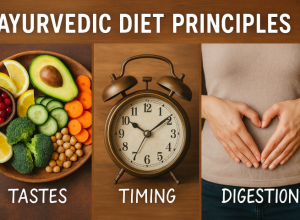CAN I PREVENT HEART DISEASE?
You can prevent heart disease by following a heart-healthy lifestyle. Coronary Artery Disease develops gradually and it is well within your power to prevent or control it. These strategies may help to preserve health and prolong life, and are particularly important for those of advanced age and those with a family history of heart disease. Even someone who has suffered a cardiac event / Heart Attack can reduce the risk of having another one by changing unhealthy behaviors and stopping all high-risk activities. Some of the steps that you can take are as follows:
LEARN YOUR FAMILY MEDICAL HISTORY
A patient’s family medical history can greatly increase (or decrease) the risk of the patient developing certain medical conditions, including coronary artery disease. Some patients prefer to develop their own MEDICAL FAMILY TREE and bring it with them to their doctor appointment. A complete family tree traces the medical history of an individual (and his or her spouse, if applicable), through at least several generations.
EATING A HEALTHY DIET
Research has consistently supported the idea that the health of people’s bodies is largely determined by what they choose to eat. Certain vitamins and minerals have been shown to be helpful to heart health, in addition to whole grains, fruits and vegetables, and soluble fiber (dietary fiber intake should be between 25 and 30 grams daily). In contrast, certain fats and oils such as saturated fat, trans fat and hydrogenated oils are particularly harmful because they can accelerate coronary artery disease, atherosclerosis and contribute to obesity. Most governments have mandated that all food companies publish the amount of trans fat in their nutritional information, in addition to the levels of saturated fat and overall fat. This will hopefully help consumers make more informed dietary choices. Conversely, monounsaturated fats, such as olive oil and the oils found in cold-water fish such as salmon, are good for the heart when eaten in moderation.
IMPROVE YOUR CHOLESTEROL RATIO
A person’s total cholesterol level (which includes LDL cholesterol, HDL cholesterol and triglycerides) should be no more than 200 milligrams per deciliter and no more than five times the HDL level. Key strategies for reducing levels of total cholesterol, LDL cholesterol and triglycerides are to eat a heart-healthy diet and exercise regularly. If these strategies do not reduce total cholesterol levels, a physician may prescribe Cholesterol-reducing drugs. Strategies for increasing levels of HDL-cholesterol include eating monosaturated fats in moderation, decreasing the amount of saturated fat, limiting alcohol use and starting an exercise program.
REGULAR EXERCISE
Exercise is an excellent tool for both preventing heart disease and improving quality of life for heart patients. Physically, it can slow or even reverse the process of atherosclerosis, as well as lower blood pressure, reduce cholesterol levels and help prevent obesity. Emotionally, it can reduce levels of stress and depression. Individuals should consult with their physician before starting any exercise program.
You already know that physical activity is good for you. But you may not realize just how good it is for you. Regularly participating in moderately vigorous physical activity can reduce your risk of fatal heart disease by nearly a quarter. And when you combine physical activity with other lifestyle measures, such as maintaining a healthy weight, the payoff is even greater.
Regular physical activity helps prevent heart disease by increasing blood flow to your heart and strengthening your heart’s contractions so that your heart pumps more blood with less effort. Physical activity also helps you control your weight and can reduce your chances of developing other conditions that may put a strain on your heart, such as high blood pressure, high cholesterol and diabetes. It also reduces stress, which may also be a factor in heart disease.
You should get at least 30 to 60 minutes of moderately intense physical activity most days of the week. However, even shorter amounts offer heart benefits, so if you can’t do it everyday, don’t give up. And remember that things like gardening, housekeeping, taking the stairs and walking the dog all count toward your total. You don’t have to exercise strenuously to achieve benefits, but you can see bigger benefits by increasing the intensity, duration and frequency of your workouts.
DIABETES CONTROL
People with diabetes are more likely to develop heart-related diseases, and elevated blood glucose levels are known to accelerate the atherosclerotic process. It is essential that diabetics maintain strict glucose control, through diet, exercise and medications, in conjunction with careful blood glucose monitoring.
CONTROL HYPERTENSION HIGH BLOOD PRESSURE
Individuals with high blood pressure are at greater risk of cardiovascular problems resulting from CAD, including heart attack. Hypertension can be controlled through taking medications, self-monitoring, eating a heart-healthy diet that is low in sodium, and engaging in regular exercise. People are also encouraged to have regular check-ups with their physician.
Regular blood pressure screenings start in childhood. Adults should have their blood pressure checked at least every two years. You may need more frequent checks if your numbers aren’t optimal or if you have other risk factors for cardiovascular disease. Optimal blood pressure is less than 120/80 millimeters of mercury.
DIET MANAGEMENT
Consistently eating a diet rich in fruits, vegetables, whole grains and low-fat dairy products can help protect your heart. Legumes, low-fat sources of protein and certain types of fish also can reduce your risk of heart disease.
Limiting your intake of certain fats also is important. Of the types of fat — saturated, polyunsaturated, monounsaturated and trans fat — saturated fat and trans fat increase the risk of coronary artery disease by raising blood cholesterol levels. Major sources of saturated fat include beef, butter, cheese, milk, and coconut and palm oils. There’s growing evidence that trans fat may be worse than saturated fat because unlike saturated fat, it both raises your LDL (bad) cholesterol and lowers your HDL (good) cholesterol. Sources of trans fat include deep-fried fast foods, bakery products, packaged snack foods, margarines and crackers.
Heart-healthy eating isn’t all about cutting back, though. Most people, for instance, need to add more fruits and vegetables to their diet — with a goal of five to 10 servings a day.
Omega-3 fatty acids, a type of polyunsaturated fat, may decrease your risk of heart attack, protect against irregular heartbeats and lower blood pressure. Some fish are a good natural source of omega-3s. However, pregnant women and women of childbearing age should avoid shark, swordfish, king mackerel and tilefish because they contain levels of mercury high enough to pose a danger to a developing fetus. But for most others, the health benefits of fish outweigh any risks associated with mercury. Omega-3s are present in smaller amounts in flaxseed oil, walnut oil, soybean oil and canola oil, and they can also be found in supplements.
WEIGHT CONTROL.
Obesity and being overweight are major risk factors for a host of serious health conditions, including coronary artery disease, high blood pressure, diabetes, heart attack and stroke. Some weight control methods include limiting fat in the diet, increasing activity levels, counseling, medication and surgical interventions. As you put on weight in adulthood, you gain mostly fatty tissue. This excess weight can lead to conditions that increase your chances of heart disease — high blood pressure, high cholesterol and diabetes.
How do you know if your weight is healthy? One way is to calculate your body mass index (BMI), which considers your height and weight in determining whether you have a healthy or unhealthy percentage of body fat.
BMI numbers 25 and higher are associated with higher blood fats, higher blood pressure, and an increased risk of heart disease and stroke.
The BMI is a good but imperfect guide. Muscle weighs more than fat, for instance, and women and men who are very muscular and physically fit can have high BMIs without added health risks. Because of that, waist circumference is also a useful tool to assess abdominal fat. In general, men are considered overweight if their waist measurement is greater than 40 inches. And women, in general, are overweight if their waist measurement is greater than 35 inches.
Even small reductions in weight can be beneficial. Reducing your weight by just 10 percent can decrease your blood pressure, lower your blood cholesterol level and reduce your risk of diabetes.
STRESS MANAGEMENT
Some people react to stress in unhealthy ways, such as overeating and smoking, Chronic stress (and hostility) by itself may be a direct contributor to poor heart health because it produces increases in blood pressure that could become permanent, as well as other physiological changes that affect the health of arteries.
QUITTING SMOKING OR NOT STARTING TO SMOKE
When it comes to heart disease prevention, no amount of smoking is safe. Smokeless tobacco and low-tar and low-nicotine cigarettes also are risky, as is exposure to secondhand smoke. Both middle-aged males and female smokers triple their risk of death to heart disease.
Tobacco smoke contains more than 4,800 chemicals. Many of these can damage your heart and blood vessels, making them more vulnerable to narrowing of the arteries (atherosclerosis). Atherosclerosis can ultimately lead to a heart attack.
In addition, the nicotine in cigarette smoke makes your heart work harder by constricting blood vessels and increasing your heart rate and blood pressure. Carbon monoxide in cigarette smoke replaces some of the oxygen in your blood. This increases your blood pressure by forcing your heart to work harder to supply enough oxygen. Even so-called “social smoking” — only smoking while at a bar or restaurant with friends — is dangerous and increases the risk of heart disease.
Women who smoke and take birth control pills are at greater risk of having a heart attack or stroke than are those who don’t do either. Worse, this risk increases with age, especially over 35.
The good news, though, is that when you quit smoking, your risk of heart disease drops dramatically within just one year. And no matter how long or how much you smoked, you’ll start reaping rewards as soon as you quit.
CONTROLLING CHRONIC DEPRESSION
Depression has been linked with a higher risk of developing high blood pressure, heart disease and having a heart attack.
MODERATE ALCOHOL USE
Excessive alcohol use increases the risk of high blood pressure, heart attack, and stroke. People who drink should do so only in moderation and always responsibly- no more than two drinks a day for men, one a day for women. At that moderate level, alcohol can have a protective effect on your heart. Above that, it becomes a health hazard.
GET REGULAR HEALTH CHECK UP
High blood pressure and high cholesterol can damage your cardiovascular system, including your heart. But without testing for them, you probably won’t know whether you have these conditions. Regular screening can tell you what your numbers are and whether you need to take action.
Heart disease is often avoidable. Following a heart-healthy lifestyle doesn’t have to be complicated, and it doesn’t mean you need to live a life of self-deprivation. Instead, find ways to incorporate heart-healthy habits into your lifestyle — and you may well enjoy a healthier life for years to come








